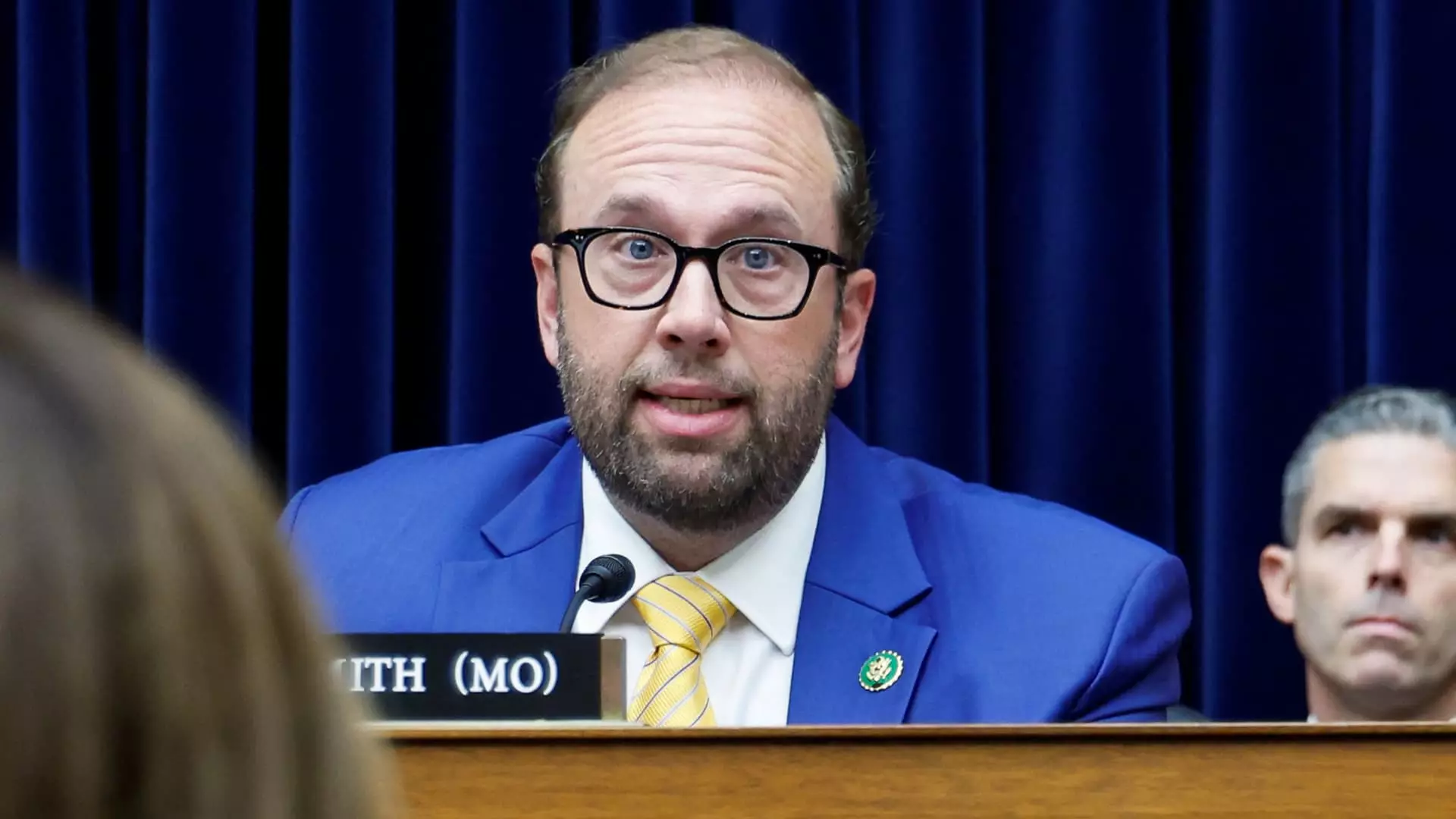As House Republicans fervently push forward with their ambitious tax plan, applauded as “One, Big, Beautiful Bill” by the party’s stalwart supporters, we must take a moment to peel back the layers of this facade. At its core, the legislation is a culmination of tax breaks that could stack the deck further in favor of wealthy individuals while doing little to alleviate the burden on the average American. The House Ways and Means Committee, after a marathon debate session, voted along party lines in favor of this economic package, but the implications could be far-reaching and detrimental.
One cannot overlook the fact that intertwined within these proposed tax breaks for corporations and the affluent lies the contentious state and local tax (SALT) deduction. With the current cap stuck at a meager $10,000—a figure that does not reflect the realities faced by taxpayers in high-tax states—the compromise to raise it to $30,000 represents a hollow victory at best. Lawmakers pushing for increased limits must confront the uncomfortable truth: while they chase expansive deductions, they neglect the vast majority of voters struggling to make ends meet.
Shortchanged: The Failure to Support Working Families
Critics of this tax plan argue that lower-earning families remain predominantly sidelined in this grand tax scheme. The inclusion of a $4,000 deduction for older Americans sounds commendable on the surface; however, it raises critical questions about efficiency versus necessity. Garrett Watson of the Tax Foundation outlines the glaring shortcomings when he mentions that tax filers solely reliant on Social Security income would see minimal benefits. For countless retirees grappling with the high cost of living, this tax package may be a bitter pill to swallow—essentially offering a token deduction while leaving the most vulnerable in a lurch.
Furthermore, the maximum child tax credit of $2,000, extended under this proposed legislation, rings hollow when we acknowledge that 17 million children will be left without adequate support under the current tax credit cap. This shortcoming only exacerbates the existing inequities that American families face, mainly those struggling to sustain a household while earning lower wages. Liberal perspectives emphasize the crucial need to uplift working families, yet Republicans appear content with superficial increases that do not equate to genuine structural change.
The Illusion of Economic Growth
Republican leadership touts the economic package as a means to bolster growth, pressing the narrative that tax cuts will stimulate job creation and economic dynamism. But history has demonstrated the futility of this argument, as tax breaks predominantly benefit the wealthy and leave crucial public services—the backbone of society—underfunded. With trillions in tax breaks potentially fueling an already vast economic divide, the ordinary citizen can scarcely expect to reap the rewards of this so-called growth.
Moreover, the focus on extending provisions from the Tax Cuts and Jobs Act (TCJA) raises the question of sustainability. Rather than proposing innovative solutions to address the structural inequities facing America, the Republican Party seems enamored with repeating failed policies. They are persistently clinging to the notion that trickle-down economics will solve our problems, while the pressing issues of income inequality and inadequate social programs bubble just beneath the surface.
The Road Ahead: Congressional Negotiations and Uncertain Outcomes
As the legislative process unfolds and the House considers the full vote in the coming weeks, many are left to wonder whether this tax package can hold up under the scrutiny of the Senate. With experts forecasting potential alterations as the bill reaches that stage, one can only hope that sensibility prevails. It is vital for moderates and liberals in Congress to seize this opportunity to advocate for changes that ensure the working class is represented and prioritized, rather than allowing the narrative to drift back into favoring those who already wield excessive financial power.
In the era of populist backlash against the elite, the GOP’s unwavering commitment to tax cuts for the wealthy could very well backfire. As citizens become increasingly aware of their position on the economic ladder, their demand for a fairer, more equitable system is poised to rise. Perhaps the House Republicans, enamored by their grand vision, should take a moment to heed the voices of those they claim to represent and rethink whether their “big beautiful bill” is truly beautiful for everyone.

